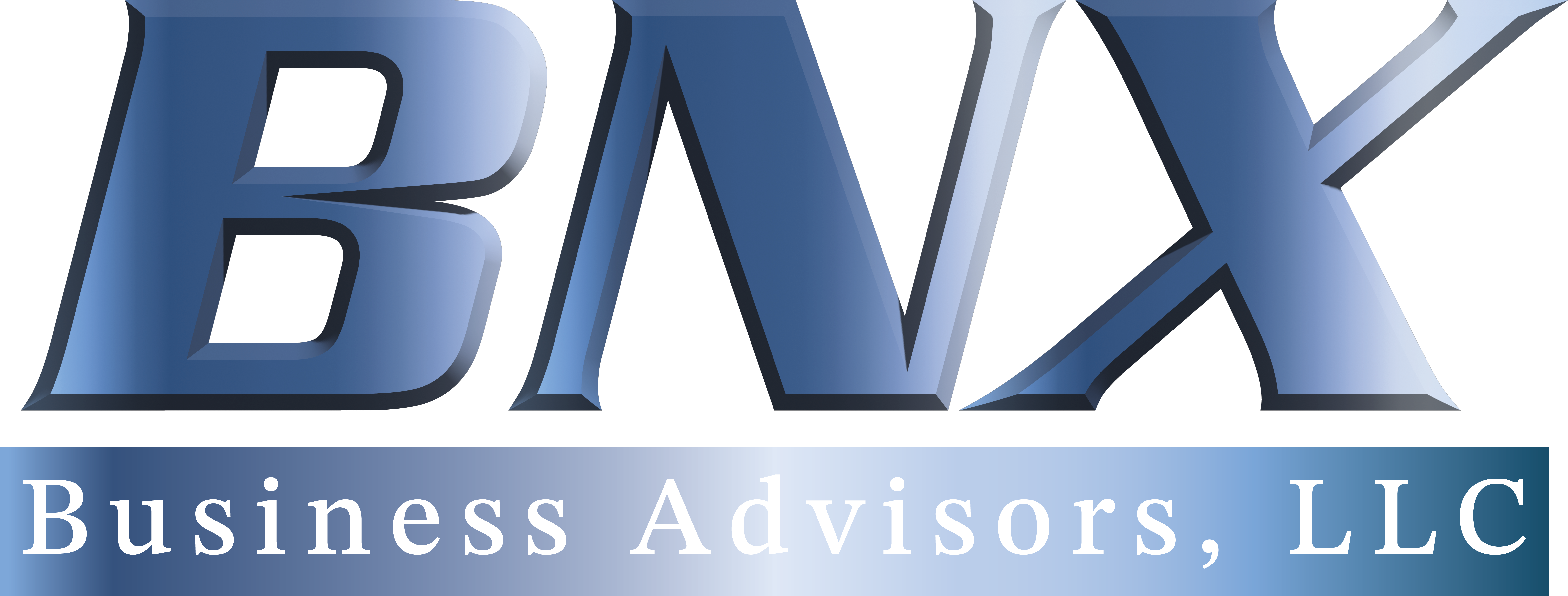

Table of Contents
Introduction
Pay transparency is becoming a critical compliance factor for businesses across the United States. In 2025, new laws in Illinois, Minnesota, New Jersey, Vermont, and Massachusetts will require employers to disclose salary ranges and benefits in job postings. While these regulations aim to promote fair pay practices, they also introduce new compliance challenges for business owners.
BNX Business Advisors is committed to helping companies navigate these changes seamlessly. In this article, we’ll break down what these new laws entail, how they impact businesses, and what steps employers must take to remain compliant.
Understanding the 2025 Pay Transparency Laws
Illinois
- Effective Date: January 1, 2025
- Who’s Affected: Employers with at least 15 employees
- Key Requirement: Job postings must include salary or wage ranges and a general description of benefits, including bonuses, stock options, or other incentives.
Illinois aims to reduce wage disparities by mandating clear salary disclosures in job advertisements. Employers must ensure accuracy in their postings and update pay scales based on market trends. Additionally, failure to comply could result in penalties and complaints filed with the Illinois Department of Labor.
Minnesota
- Effective Date: January 1, 2025
- Who’s Affected: Employers with 30+ employees in Minnesota
- Key Requirement: Employers must disclose the starting salary range and a general description of all benefits. A fixed pay rate may also be provided.
Minnesota’s law emphasizes clarity in job postings to prevent wage discrimination. Employers should prepare by conducting salary benchmarking and ensuring all job descriptions reflect the appropriate compensation level.
New Jersey
- Effective Date: June 1, 2025
- Who’s Affected: Employers with at least 10 employees working for 20+ weeks
- Key Requirement: Job postings must include salary details and a description of benefits. Employers must also notify employees about promotional opportunities before making decisions.
A unique aspect of New Jersey’s pay transparency law is its requirement for internal transparency. Employers must communicate promotional opportunities to all eligible employees, ensuring fair access to career advancements.
Vermont
- Effective Date: July 1, 2025
- Who’s Affected: Employers with 5+ employees
- Key Requirement: Employers must disclose compensation ranges in job ads. For commission-based roles, they must outline the commission structure. For tipped positions, the base wage must be stated.
Vermont’s law ensures that employees in various pay structures—including commission-based and tipped positions—have a clear understanding of their potential earnings. Employers should refine their compensation models to maintain compliance.
Massachusetts
- Effective Date: October 29, 2025
- Who’s Affected: Employers with 25+ employees
- Key Requirement: Salary ranges must be included in all job postings, including those managed by third-party recruiters. Employers must also disclose pay ranges to current employees upon request.
Massachusetts extends transparency requirements beyond job applicants by allowing current employees to request salary ranges for their roles. Businesses should implement clear documentation of pay scales to prepare for such requests.
Why Pay Transparency Matters
These laws are designed to ensure fair compensation and reduce pay disparities. However, businesses that fail to comply risk penalties, lawsuits, and reputational damage. Compliance is not just a legal necessity—it’s an opportunity to build trust with employees, attract top talent, and strengthen company culture.
1. Reducing Pay Disparities
One of the primary goals of pay transparency laws is to close wage gaps related to gender, race, and other factors. When salaries are openly disclosed, organizations are more accountable for equitable compensation practices.
2. Enhancing Talent Acquisition and Retention
Clear salary disclosures in job postings can help businesses attract qualified candidates who align with their compensation structure. Additionally, existing employees may feel more valued when transparency is upheld, reducing turnover rates.
3. Strengthening Company Culture and Trust
Organizations that prioritize pay transparency foster an environment of openness and fairness. Employees who understand the pay structure are more likely to trust leadership and feel confident in their career growth within the company.
4. Mitigating Legal Risks
Failure to comply with these new laws can lead to significant legal consequences, including fines and lawsuits. By proactively implementing pay transparency policies, businesses can avoid legal challenges and demonstrate their commitment to compliance.
How to Prepare for Compliance
Employers must take proactive steps to ensure compliance with the new pay transparency laws. Here’s a roadmap to help businesses prepare:
1. Conduct a Compensation Audit
Before disclosing salaries publicly, businesses should evaluate their current pay structures. A compensation audit will help identify inconsistencies and ensure alignment with market standards.
2. Develop Clear Pay Ranges
HR teams should establish well-defined salary ranges for all job positions. These ranges should be based on factors such as experience, industry benchmarks, and internal equity.
3. Update Job Postings and Hiring Policies
Employers should revise job postings to include salary ranges and benefit descriptions. Additionally, hiring teams must be trained on compliance requirements to ensure consistency.
4. Educate Leadership and Employees
Providing training sessions for HR personnel, managers, and employees can help ensure a smooth transition to transparent pay practices. Leaders should be equipped with the knowledge to handle salary-related discussions effectively.
5. Implement Ongoing Compliance Monitoring
Since pay transparency laws vary by state, businesses operating in multiple locations should regularly review legal updates. Establishing a compliance monitoring system will help mitigate risks associated with non-compliance.
How BNX Business Advisors Can Help
BNX Business Advisors specializes in helping businesses implement strategic compliance frameworks. Our Tactical Engagement approach ensures that companies meet regulatory requirements while maintaining competitive and sustainable compensation practices. We assist with:
1. Salary Benchmarking & Market Analysis
We help businesses analyze salary trends and establish fair pay structures that align with industry standards.
2. Compliance Audits
Our experts conduct thorough reviews of compensation policies to identify gaps and recommend necessary adjustments.
3. Training & Policy Development
We provide training programs for HR teams and leadership to ensure effective implementation of pay transparency policies.
4. Multi-State Compliance Strategy
For companies operating in multiple states, we develop customized compliance plans to meet diverse legal requirements.
5. Ongoing Support & Consultation
BNX Business Advisors offers continuous support to help businesses adapt to evolving labor laws and compliance expectations.
Conclusion
The 2025 pay transparency laws mark a significant shift in employment regulations, emphasizing fairness, accountability, and employee empowerment. While these changes introduce new compliance obligations, they also present an opportunity for businesses to refine their compensation strategies and enhance workplace trust.
By proactively preparing for these new laws, companies can avoid legal risks, attract top talent, and build a more engaged workforce. BNX Business Advisors is here to support businesses in navigating these changes with expert guidance and tailored compliance solutions.
Stay ahead of these changes by working with BNX Business Advisors. Contact us today to ensure your business is prepared for the 2025 pay transparency laws.
📌 Need expert guidance? Visit our website: www.BNXBA.com or email us at YaraB@BNXBA.com.

